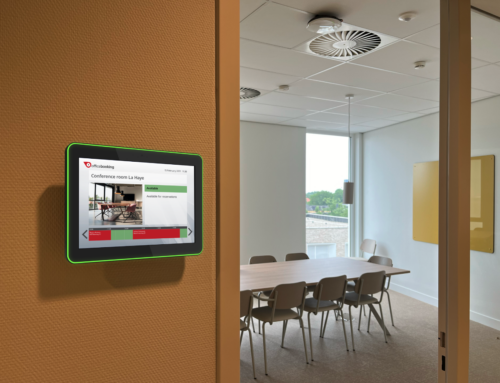
As the world of work continues to evolve, it’s important for businesses to adapt to new trends and embrace changes that can lead to increased productivity, improved employee satisfaction, and better business outcomes. One such trend that is gaining traction is hybrid work, which combines remote work and office work.
By implementing a hybrid work model, your organization can enjoy several benefits that can help drive growth and success. Here are some reasons why you should consider hybrid work:
Hybrid working benefits:
-
Flexibility leads to a happy employee → retention and enhanced productivity.
-
Optimize utilization of company real estate.
-
Save costs: commuting (time and expenses), energy, cleaning, etc.
Flexibility leads to a happy employee
One of the most significant benefits of hybrid work is that it offers employees the flexibility to work from home or the office, depending on their needs. This flexibility can lead to higher levels of job satisfaction and work-life balance, which can improve employee retention and enhance productivity. According to a survey conducted by Buffer, 98% of remote workers would like to work remotely for at least some of the time for the rest of their careers.
By allowing employees to work from home, they can avoid long commutes, save money on transportation, and spend more time with their families. All of these factors contribute to a more relaxed and productive work environment. According to a study by Owl Labs, remote workers experienced less stress and reported higher job satisfaction levels.
Moreover, the flexibility of hybrid work can help organizations attract top talent from all over the world, as they are no longer limited to hiring employees who live within commuting distance from the office.
Optimize utilization of company real estate
Another advantage of hybrid work is that it can optimize the use of company real estate. When an organization adopts hybrid work, employees are given the flexibility to work from home or the office depending on their needs. This means that not all employees will be working in the office at the same time. As a result, companies can reduce their office space requirements, meaning they may not need as much physical office space as they did when all employees worked from the office full-time. This can result in significant savings on rent, utilities, and other related costs.
Furthermore, with fewer employees in the office at any given time, organizations can use this opportunity to create more collaborative workspaces, such as open-concept areas, that are better suited for group work and meetings. These types of workspaces can be designed to facilitate more interaction and collaboration among employees, leading to more innovative ideas and better decision-making.
Save costs
When an organization adopts hybrid work, employees are given the flexibility to work from home or the office, depending on their needs. This means that some employees will be working from home part-time, and others will be working from the office part-time.
One of the significant advantages of hybrid work is that it can help organizations save costs in several areas. For example, with fewer employees commuting to the office, there will be less traffic on the roads, resulting in reduced carbon emissions and less congestion. This can have positive environmental impacts and also reduce the cost and time associated with commuting.
Moreover, with fewer people in the office, organizations can reduce energy consumption, leading to cost savings and a smaller environmental footprint. For example, with fewer people in the office, the organization can reduce the amount of lighting, heating, and cooling needed, resulting in lower energy bills. Additionally, with fewer people in the office, cleaning, and maintenance costs can be reduced.
In conclusion, hybrid work is a growing trend that offers numerous benefits to organizations. By providing employees with the flexibility to work from home or the office, hybrid work can increase job satisfaction and work-life balance, leading to improved employee retention and productivity. It also can also optimize the utilization of company real estate, resulting in cost savings on rent, utilities, and other related expenses. Furthermore, hybrid work can have positive environmental impacts, such as reducing carbon emissions and energy consumption, resulting in cost savings and a smaller environmental footprint. As the world of work continues to evolve, it is important for organizations to embrace hybrid work to stay competitive and drive growth and success.





